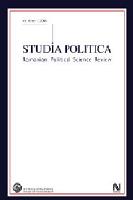Lustration in Romania: The Story of a Failure
Lustration in Romania: The Story of a Failure
Author(s): Lavinia StanSubject(s): History
Published by: Editura Universităţii din Bucureşti
Summary/Abstract: Since 1989, lustration has figured prominently among the methods post-communist Eastern Europe used to deal with its recent past. While to date the literature has recognized that countries like the former Czechoslovakia, Germany, Albania and, more recently, Poland, have screened electoral candidates and / or members of the judiciary, the army and the police forces, in order to remove officials with a tainted past from post-communist politics, Romania has been dismissed as a country which consistently rejected lustration. However, calls for the removal of communist officials and secret political police agents were voiced soon after the Revolution of December 1989, and the measures they called for were more comprehensive both in terms of the social categories subjected to and the time period of the ban. This article is the first in-depth analysis to examine the lustration demands included in the Timisoara Declaration, explain the reasons why they received a cold shoulder from formations spanning the entire political spectrum, and map the negotiations between political parties and the civil society for the renewal of the political class. Romania missed the window of opportunity to legislate lustration because of such factors as its bloody exit from communism, the inability of pro-democratic opposition to wrestle power from the successor of the Communist Party, and its predominantly subject political culture.
Journal: Studia Politica. Romanian Political Science Review
- Issue Year: 6/2006
- Issue No: 1
- Page Range: 135-156
- Page Count: 1
- Language: English

